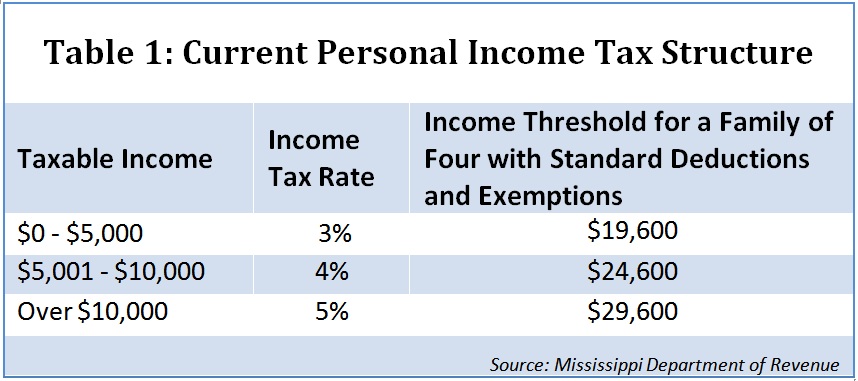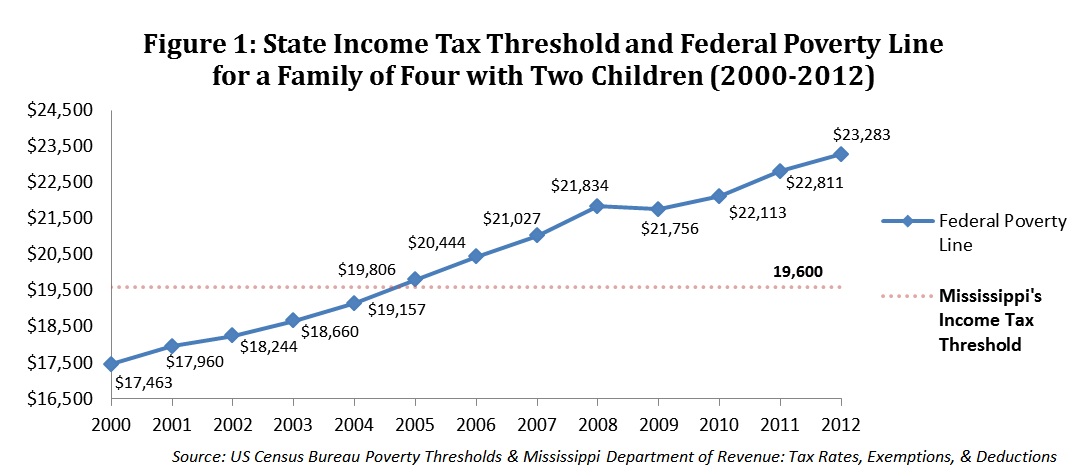Mississippi’s income tax is progressive, but only slightly so. Under the current tax structure (shown in the table below), the top tax rate of 5% starts at $10,000 of taxable income or $29,600 of gross income for a family of four.
In essence, this means that a family earning $30,000 pays the same tax rate as a family earning $300,000 or a family earning $3,000,000.
How This Structure Hurts Mississippi’s Low-Income Families
As described in our previous blog, Mississippi’s current tax system places the largest tax burden on low income families.
Since the early 2000’s, our state’s income tax threshold (the point below which a family owes no income tax) for families of four has held steady at $19,600. Without adjustment, the gap between Mississippi’s income tax threshold and the federal poverty line will increase annually (See Figure 1, below). This means there will be more individuals living below the federal poverty line that are required to pay state income taxes and who are falling deeper into poverty as a result.
Our Income Tax System Should Work for—Not Against—Working Families
A recent report by the American Legislative Exchange Council, “Rich States, Poor States,” has caused many leaders across the country to claim that eliminating income taxes will spur economic growth. The report found that 62% of net job growth in the U.S. over the last decade occurred in states with no income taxes. However, this report fails to disclose that out of the nine states included in the study, a single state—Texas— accounted for 70% percent of net job growth, while the remaining eight states experienced increases in unemployment.
Simply getting rid of the income tax is not the answer. Scrapping the income tax would place a heavier reliance upon our state’s sales tax—jeopardizing Mississippi’s economy and raising taxes on middle and low-income families—families that already carry a large tax burden. Instead, we should improve the income tax to reflect the realities of working families. This could be done by adding another tax bracket on top of the brackets that already exist and enacting credits, such as a State Earned Income Tax Credit, to boost our state’s economy.
Author: Francinia McKeithan Henry, Policy Analyst/ SFAI Policy Fellow







